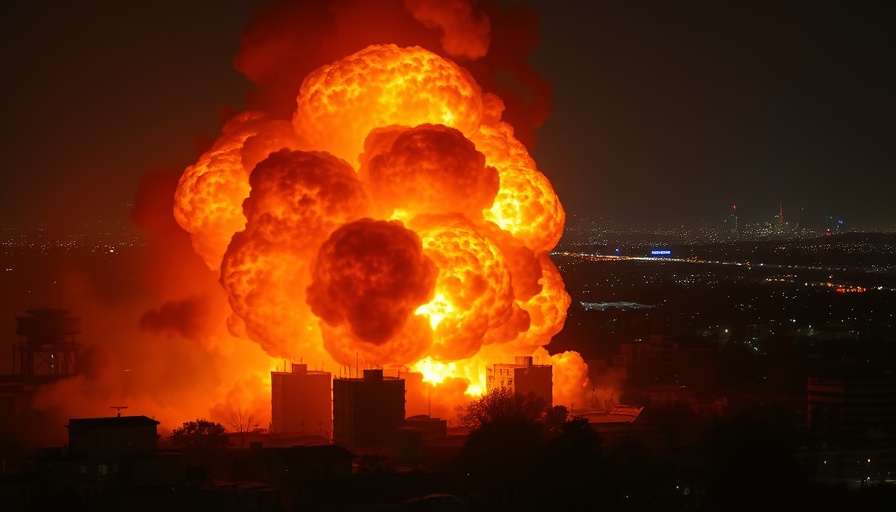
The Earthquake That Shook Iran's Capital: What Happened?
On May 3, 2025, a 4.0-magnitude earthquake jolted Tehran, leaving residents in a state of alarm. Many reported hearing a substantial explosion just before the tremor struck. This explosion, reportedly near a power station and a cardboard factory, has heightened concerns about safety and the string of violent incidents affecting Iran in recent times.
An Enigmatic Connection: Earthquake and Explosion
The Iranian authorities have yet to provide an official statement regarding the potential relationship between the earthquake and any explosion. Eyewitness accounts suggest that the sounds of a blast resonated through the city moments before the seismic event occurred. However, what this means for the safety of residents remains unclear, as officials remain tight-lipped amid rising tensions in the region.
Understanding the Geopolitical Tension in the Region
Issues of national security and frequent unrest have plagued Iran, particularly post-sanctions and during ongoing geopolitical debates. The current state of affairs around Tehran is exacerbated by internal unrest and external threats. For Christians and humanitarian-focused advocates, such moments remind us of the delicate balance and the urgent need for interfaith dialogue to foster peace within these communities.
Why This Matters to Culturally Engaged Christians
For globally aware Christians, understanding these events goes beyond mere news. They symbolize the struggles and resilience of communities facing uncertainty amid storms—both literal and metaphorical. The plight of followers of Christ in volatile regions like Iran often calls for prayer, active support, and advocacy.
Further Insights: The Role of Unresolved Conflict
Historical conflicts, particularly regarding religious freedom, make incidents like this resonate deeply. The voice of the persecuted church often rises in these moments; continuous unrest, allied with natural disasters, complicates their plight. The importance of humanitarian action and engagement can not be overstated as it serves to uplift their challenges and offer solutions.
Your Role in Supporting Peace Through Contextual Awareness
Awareness is the first step towards advocacy. Consider exploring organizations that support Christians in the Middle East. Engaging in dialogue about these topics can lead to more compassionate actions and encourage humanitarian initiatives. Acts of service can be a beacon of hope, highlighting solidarity with the suffering.
Next Steps: Becoming an Advocate
What can you do? Stay informed, educate others, and consider joining movements that support interfaith dialogue and humanitarian work. Engage in discussions within your church or community that focus on addressing both the physical and spiritual needs of individuals affected by such events.
Conclusion: Beyond the Headlines
These incidents are not just news; they represent the heartbeat of communities in need. As Christians, understanding the deeper relevance of such events enables us to manifest hope and support for the persecuted church. Together, we can take actionable insights from these discussions to ensure that the voices of those suffering are amplified.
 Add Row
Add Row  Add
Add 








Write A Comment